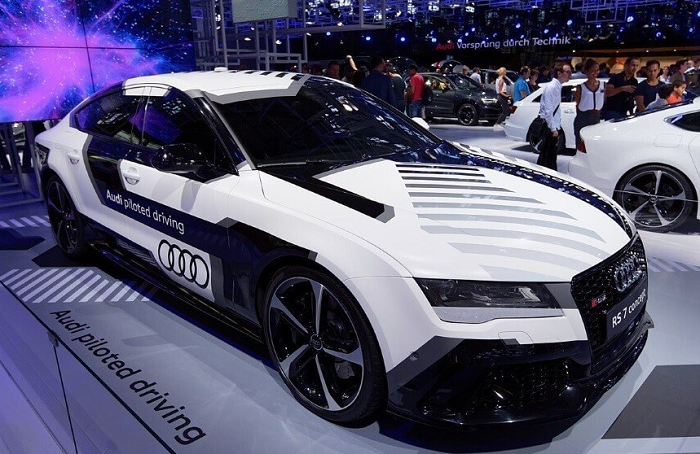Of all the luxury car brands, Audi has been the most aggressive in terms of putting semi-autonomous technology into its production cars. In fact, Audi, which Audi of Gainesville, Fl reminds us is owned by the Volkswagen Group, recently declared that they will investing almost $16 billion on self-driving technology through 2023. Much of that work will take place at the Autonomous Intelligent Driving (AID) Group, a wholly owned subsidiary of Audi.
AID
The AID group was founded a year-and-a-half ago, and today employs around 150 employees. AID headquarters is in Munich, where it currently has 12 autonomous test vehicles operating on public roads. Most of the test vehicles are VW Golf hatchbacks. According to Alexandre Haag, the group’s chief technology officer, “Our goal is to develop the full Level 4 stack.” (The Society of Automotive Engineers defines Level 4 as a car that completely drives itself from start to finish within a specifically designated area.) “The first application to be robo-taxi,” Haag added, “and in the long term provide the whole group with a self-driving stack for ownership vehicles, trucks, buses, food deliveries… everything in the long term.”
Full Level 4 Stack
Like most autonomous driving programs, the Audi division uses software and deep learning-based approaches to process all the sensing data picked up by its suite of sensors, such as LIDAR point clouds, camera pixels, and radar echoes. This perception data models the vehicle’s environment, both near and far, by detecting objects, vehicles, pedestrians, and other obstacles.
Like most autonomous driving programs, the Audi division uses software and deep learning-based approaches to process all the sensing data picked up by its suite of sensors
The competition
Audi is not as far ahead as other automakers in developing and deploying automated vehicles. Waymo, the self-driving division of Alphabet, just launched a limited commercial robot taxi service outside Phoenix, AZ. General Motors says it will unveil its own ride-hailing service in San Francisco in late 2019. Audi is aiming to deploy its robot taxis at scale in 2021, the same year targeted by Ford for its service.
Luminar
To boost its efforts, Audi is bringing on some new suppliers to help with these challenges of perception and prediction. For example, AID announced that it will be working with Luminar, a Palo Alto-based startup that makes LIDAR sensors and perception software for autonomous vehicles. LIDAR, sends millions of laser points out per second and measures how long they take to bounce back, is seen as a key ingredient to autonomous driving.
Haag said he was impressed with the range and point-cloud density of Luminar’s LIDAR. AID’s vehicles will use Luminar’s sensors for long-range perception and detection, as well as shorter range LIDAR made by Velodyne for closer objects.

